500-Page PBS Report Quotes Former Employees
NAHJ Finds ‘Culture of Unacceptable Behavior’
ESPN’s Edward Aschoff Dies at 34, on Birthday
Seattle Times Capitalizing ‘Black,’ but Not White
What ProPublica Learned in ‘Documenting Hate’
‘Gotcha’ Can Also Mean They Did Right
R. Kelly Sequel Delivers Vivid Takeaways
Far-Right Trumpers Fear Loss of White Power
‘Anti-Semitism Exists Across Political Spectrum’
Women Seek Parity With Men in Asian Newsrooms
Short Takes
[btnsx id=”5768″]
My response to PBS suspension full text here: https://t.co/SzcQLfQWeX pic.twitter.com/8KX2QIr59B
— Tavis Smiley (@tavissmiley) December 14, 2017
500-Page PBS Report Quotes Former Employees
“Tavis Smiley has lost a bid to throw out PBS’ lawsuit that accuses him of violating his contract by having sex with his subordinates,” Gene Maddaus reported Thursday for Variety.
“Smiley’s attorneys had argued that PBS was trying to punish him for behavior that long predated his current contract. But in a ruling on Thursday, D.C. Superior Court Judge Yvonne Williams disagreed, finding that PBS had also claimed more recent misconduct. . . .”
A report by an external investigator hired by PBS claims the former talk show host spent decades engaged in sexual relationships with subordinates and guests on his show, and committed acts of verbal abuse, inappropriate touching, and made unwanted sexual comments, as Bruce Haring reported Thursday for Deadline.
Haring summarized some of the allegations in the 500-page report:
- “A former employee alleged that Smiley asked her to lunch, and then asked about her bra size, offering a trip to Victoria’s Secret at The Grove. The woman was eventually laid off from the show and was allegedly told that she ‘knew too much’ about Smiley’s actions, according to the report.
- ” Several women interviewed for the report claimed consensual relations with Smiley, but said that the power differences made for an uneasy relationship. One guest on the show who was involved claimed she was not invited back despite submitting to Smiley.
- “Another producer on the Smiley show who had a sexual relationship with him was told that the relationship would be kept secret. However, she was terminated when others found out. She told the investigators that she believed other office sexual relationships played a role in her dismissal.
- “Still another accuser said Smiley asked her why she was ‘playing so hard to get’ on a business trip.
- “A woman claimed in 2000, Smiley grabbed her buttocks during a photo session, and then later purposely made contact between his penis and her buttocks.
- “One woman claimed that when she visited Smiley’s house, he opened the door and was not wearing pants. He later asked her to have a threesome with him and his executive producer Kimberly McFarland, who, the report claimed, was seen naked in Smiley’s bed with a frightened look.”
On Friday, Smiley replied on Facebook, “A weak case you play in the press, a strong case you play out in a court of law. I look forward to my day in court February 10, which I have finally been granted, after 2 years of fighting.”
The posting generated more than 200 responses from supporters, such as from one woman who said, “Whatttttttttttt?!? Glad you are not down & out. You will come out on top; stay strong. You represent the strong honest faithful men!!!”
- Read the report [PDF]
- Elaine Low, Variety: PBS Investigation Details Tavis Smiley Sexual Misconduct Allegations
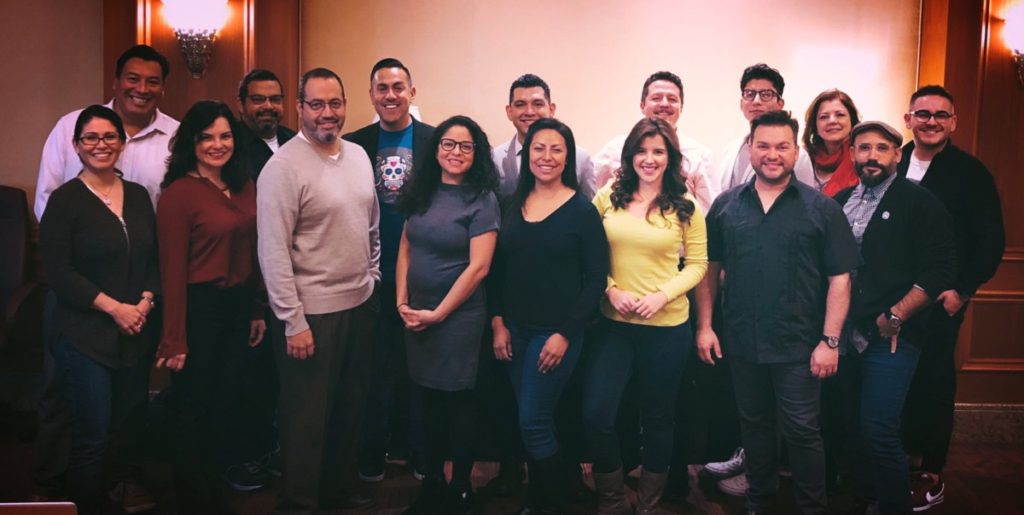
NAHJ Finds ‘Culture of Unacceptable Behavior’
The National Association of Hispanic Journalists, responding to allegations that sexual misconduct took place within its student projects program, declared that a “special committee did find a culture of unacceptable behavior at past NAHJ conferences.”
In a Dec. 27 announcement (posted Dec. 30 on the NAHJ website), the association said it had adopted a series of recommendations, two of which were implemented at the Excellence in Journalism conference in September, though “ultimately, the special committee was unable to confirm the specific allegations, including whether the NAHJ board at the time was aware of the original complaint involving incidents as far back as 2010.”
The special committee was appointed after former NAHJ board member Russell Contreras posted on Facebook in 2018, “the allegations surrounding the 2010 student projects were known as far back as 2011. As NAHJ Financial Officer, I began hearing about the allegations as I started to look at ways to reduce cost with student projects just when NAHJ was facing bankruptcy. I talked to a victim, I saw inappropriate photos posted on social media by a mentor and I heard other horrendous stories. . . .”
The NAHJ report said, “The special committee initially consisted of Laura Castaneda (chair), Blanca Rios, and Javier Palmera. Subsequently, Mr. Palmera dropped out and two other board members were added to the team: Nick Valencia and Robert Hernandez.” It added that the committee interviewed 16 people and that “during the course of the investigation, the special committee was made aware of other allegations of misconduct, and addressed those within the scope of the investigation.”
The recommendations were:
- Establish a hotline at conventions for members to report any harassment or other concerns. (Implemented at the EIJ 2019 conference).
- Establish an NAHJ response team to immediately respond to hotline reports during conventions. (Implemented at the EIJ 2019 conference).
- Establish a permanent reporting mechanism for NAHJ members to file complaints, such as calling or emailing the NAHJ executive director or board president.
- Require periodic anti-harassment training for board members and student mentors, to commence by the end of 2019.
- Board leaders, staff and chapter leaders will be required to complete online anti-harassment training by March 31, 2020.
- Require rigorous reference checks for student project mentors.
- Mentors will be required to sign the code of conduct and complete anti-harassment training prior to becoming a mentor.
- Require that the suite rented for the NAHJ president at the national convention be limited only to the president and his/her spouse/partner and family.
- Require the NAHJ board to create record or documentation of every incident.
Some members complained on Facebook about the timing of the announcement, made over the holidays. NAHJ President Hugo Balta replied, “I’ve been advised that statistically, I’m advised that our members engage more with our eblast comms closer to holidays . . . a higher read rate.”
Balta also wrote, “This is all NAHJ can communicate at this time. At the right time and appropriate setting, NAHJ would certainly answer questions to the best of its knowledge and within certain parameters.”
Last day at @MSNBC
–
I’ve enjoyed every minute of my brief, but memorable return to @NBCNews
–
Up next…this Connecticut Yankee, shaped in Paterson, New Jersey, battle tested in NYC, sporting a Miami Beach tan is heading west.
–
Stay tuned for more ?
–@NAHJ @NHMC pic.twitter.com/MGa1Z1kyIh— Hugo Balta ? (@HugoBalta) January 3, 2020
Separately, Balta announced Friday that he has left MSBNC, where he was a senior producer, and that readers should “stay tuned for more.”
- Alejandro Serrano, Latino Reporter: NAHJ board appoints three of its own members to investigate allegations of misconduct after years of inaction (July 24, 2018)
- Alejandro Serrano, Latino Reporter: Allegations spur new policy: NAHJ student-mentor relationships banned (July 18, 2018)

ESPN’s Edward Aschoff Dies at 34, on Birthday
“On Christmas Eve, the devastating news that ESPN reporter Edward Aschoff passed away at the age of 34 was reported by Lake City Reporter’s Zach Abolverdi,” Emily Bicks wrote Dec. 26 for heavy.com. “In his tweet, Abolverdi wrote that Aschoff had died from pneumonia. Christmas Eve was his birthday.
“Aschoff’s final post on Instagram detailed his sickness. Featuring a photo of fiancée Katy Berteau he wrote on December 4, ‘Having pneumonia is pretty terrible. Like the absolute worst. But it helps having this sweet angel taking care of you even when she’s risking getting this soul-crushing illness herself. All the soup, tea and delicious meals have kept me from crawling into a corner and crying the days away. Love you, babe. Thanks for putting up with my 5 am coughing fits @katybert #wcw”
“Condolences from his co-workers quickly flooded Twitter following the news of his untimely passing. . . . “
Heavy.com listed five facts “you need to know” about Aschoff:
1. Aschoff Was A Graduate of The University of Florida . . .
2. Aschoff Talked Openly About Growing Up Biracial In Oxford, Mississippi . . .
3. Katy Berteau Proposed to Aschoff With A Godzilla Ring When They Got Engaged . . .
4. Both Aschoff’s Parents Are Deceased . . .
5. Aschoff Said He Was Suffering From Pneumonia While Covering OSU v Michigan on December 2 . . .
A memorial service for Aschoff took place Saturday at the College Football Hall of Fame in Atlanta, Rob King, senior vice president, original content, newsgathering and digital media at ESPN, told Journal-isms.
“I’m told a packed house heard loving moving words from friends and colleagues. Edward’s fiancée Katy Berteau broke a few hearts when she read the wedding vows she’d prepared for their planned April wedding,” King said.
An additional memorial and celebration of Ashchoff’s life is scheduled for Jan. 18 in Oxford, Miss., his birthplace, Jake Thompson reported for the Oxford Eagle.
- Andrea Adelson and Chris Low, ESPN: Edward Aschoff, ESPN college football reporter, dies at age 34 (Dec. 24)
- Ross Dellenger, Sports Illustrated: “To Ed!”: LSU Tigers Hold Close Bond With Late ESPN Reporter Edward Aschoff (Dec. 26)
- Arash Markazi, Los Angeles Times: Unexpected death of ESPN’s Edward Aschoff hit home (Dec. 25)
- National Association of Black Journalists: A Statement on the Passing of ESPN’s Edward Aschoff (Dec. 26)
- Ashley Paul, BayNews9, St. Petersburg, Fla.: Medical Expert Weighs in on Deadly Case of Pneumonia
-
- Mihir Zaveri, New York Times: Edward Aschoff, ESPN College Football Reporter, Dies at 34 (Dec. 25, updated Dec. 26)
Seattle Times Capitalizing ‘Black,’ but Not White
“As of Dec. 18, 2019, The Seattle Times capitalizes the word ‘Black’ when referring to a culture, ethnicity or group of people,” the news organization declared Dec. 19.
“The Times regularly reviews its style guide and makes adjustments as language and society change. New guidance on usage of ‘Black’ arose from discussions in the broader culture about what constitutes a 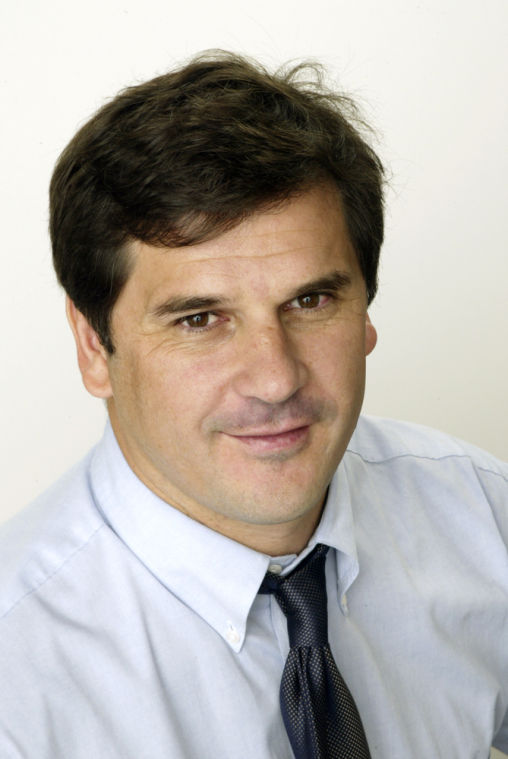 people, and the historical use of various words to describe the people and descendants of the African diaspora.
people, and the historical use of various words to describe the people and descendants of the African diaspora.
“ ‘The time was overdue for this kind of reassessment,’ said Ray Rivera (pictured), the Times’ managing editor, who oversees standards for the news organization. ‘We felt this was an important move. It is increasingly clear this is the preferred term among many Black publications and presses. It seems appropriate and respectful for us to follow suit’.’
“While many news outlets continue to use the word ‘black’ with a lowercase ‘b,’ increasingly grammarians argue that capitalizing it puts it on par with other identifiers of race, such as Native American and African American. Many style guides and dictionaries say both versions are equally accurate, depending on the preference of the author, publisher or subject of a story. . . .”
The Times decided not to capitalize “white,” however. “Unlike Black, it is lowercase, as its use is a physical description of people whose backgrounds may spring from many different cultures. Capitalized white is often used by the white nationalist/white supremacist movement. Do not use as a singular or plural noun. When ethnicity is relevant to the story, ask the source which personal ethnic identifier they use,” the Times’ new stylebook entry says.
What ProPublica Learned in ‘Documenting Hate’
“After a spate of hate incidents in the wake of the 2016 election, we wanted to better understand why the government does such a bad job tracking hate crimes,” Rachel Glickhouse wrote Thursday for ProPublica. “So we launched Documenting Hate, working to uncover as much as we could about hate in America. It’s an enormous task, and we knew from the beginning we’d need lots of help. That’s where you, our partner newsrooms, came in.
“Now that the collaboration is coming to an end, we wanted to share with you the impact that we’ve been able to achieve together and to thank you for working with us for these three years. . . .
“We found a number of patterns in the tips we received and the police records we gathered. ‘Go back to your country’ or ‘go back to X country’ was one of the most common phrases we encountered in both hate crimes and bias incidents. We saw a large number of hate incidents in schools, particularly after the 2016 election.
“Latinos have been targeted based on the (often erroneous) belief that they are immigrants or for speaking Spanish. People of color reported being victimized by people who referred to the president or his border and immigration policies. We found people of color harassed by their neighbors and targeted in hate incidents at superstores. We heard from Muslims and people of Arab descent targeted in road rage incidents. . . .”
Glickhouse went on to list the positive results of the project.
-
- Connor Sheets, AL.com and ProPublica: What Happens When Sheriffs Release Violent Offenders to Avoid Paying Their Medical Bills (Dec. 31)
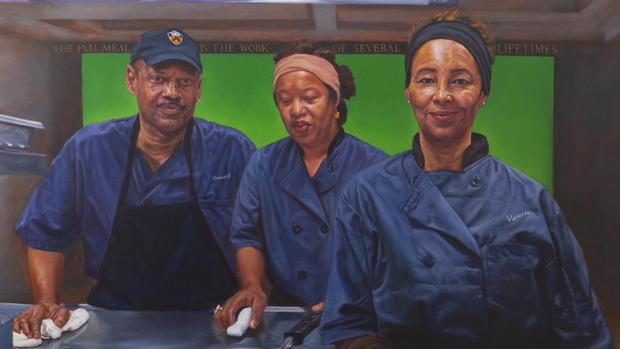
‘Gotcha’ Can Also Mean They Did Right
Playing “gotcha” comes with the territory, so when CBS News mixed up photos of Reps. John Lewis and Elijah Cummings last week, some were quick to pounce. CBS apologized.
But on the same “CBS Evening News” edition, the broadcast closed with a story from Adrianna Diaz about Princeton University choosing to post portraits of dedicated black Princeton workers alongside those of the school’s past white presidents.
The portraits were painted by visiting art fellow Mario Moore, a young and conscious African American. It seemed a rare occurrence, but the story went unremarked upon.
Neither did we hear much about MSNBC’s confusion of the bearded Rep. Joaquin Castro, D-Texas, with his clean-shaven twin brother, former Housing Secretary Julián Castro, or Fox News’ prime-time confusion of CNN’s Chris Cuomo with his brother, New York Gov. Andrew Cuomo.
Those did not play into a familiar narrative, as did the mixup of Lewis and Cummings, who are both African American.
Maybe Margaret Sullivan, Washington Post media critic, was onto something. CNN’s Brian Stelter asked media observers for their New Year’s resolutions. “I’m resolving to amplify good journalism (almost) as often as I criticize or point out the flawed or bad — all in the spirit of ‘catch them doing something right,'” Sullivan said.
- Editorial, Baltimore Sun: 2019 Marylander of the Year: Elijah Cummings (Dec. 28)
Official trailer for Lifetime’s “Surviving R. Kelly Part II: The Reckoning”
R. Kelly Sequel Delivers Vivid Takeaways
“Twenty-six years ago, R. Kelly married his protégée, Aaliyah,” Marlow Stern reported Thursday for the Daily Beast. “He was 27, and she was just 15. Eighteen years ago, a video was widely circulated allegedly of the R&B superstar raping and peeing on an underage girl.
“Despite the vast evidence, which included decades of additional allegations of grooming and sexual abuse against Kelly exposed by journalist Jim DeRogatis, it wasn’t until the release of last year’s dream hampton docuseries Surviving R. Kelly that the public finally turned on him. The Twitterati circulated the hashtag #MuteRKelly; RCA dropped him; and in July, federal prosecutors indicted Kelly on 18 charges, chief among them kidnapping, child sexual exploitation, and child pornography.
“Exactly one year — and one truly insane dust-up with Gayle King — later, and Lifetime has returned with a follow-up special about the depths of Kelly’s alleged crimes, how he is said to have intimidated his victims, and the two young women currently caught in his spell. . . .”
Billboard and Essence magazines were among those who published takeaways from the three-espisode
“Surviving R. Kelly Part II: The Reckoning” that began Thursday.
From Michael Saponara Saturday in Billboard:
R. Kelly allegedly raped his hairdresser . . .
Survivor Jerhonda Pace details her suicide pact with R. Kelly . . .
Survivor Dominique Gardner speaks out for the first time since escaping from Kelly’s captivity . . .
R. Kelly would punish his girlfriends by starving them or not letting them drink water for more than a week . . .
A former employee says R. Kelly was also sexually involved with boys . . .
Kelly made his girlfriends sign documents saying they were abused by family members . . .
In Essence, Sydney Scott reported “five startling details we learned from night one”:
Aaliyah Told Dame Dash That R. Kelly Was A ‘Bad Man’ . . .
Members Of Kelly’s Team Threatened Survivors . . .
Kelly Quietly Reached A Number Of Settlements With Victims . . .
Jive Records Employees Enabled Kelly’s Behavior In Order To Keep Their Jobs . . .
R. Kelly’s Brother Says The Singer Once Admitted That He Had A ‘Problem’ . . .
Far-Right Trumpers Fear Loss of White Power
Astead W. Herndon (pictured below), a black journalist on the 2020 election team at the New York Times, confirmed many a suspicion of what motivates some Trump voters after covering “Trumpstock,” a small festival celebrating President Trump in Golden Valley, Ariz.
 The October festival drew only about 100 people, Herndon wrote on Dec. 28. “But if any group remains singularly loyal to Mr. Trump, it is the small but impassioned number of white voters on the far right, often in rural communities like Golden Valley, who extol him as a cultural champion reclaiming the country from undeserving outsiders,” Herndon wrote.
The October festival drew only about 100 people, Herndon wrote on Dec. 28. “But if any group remains singularly loyal to Mr. Trump, it is the small but impassioned number of white voters on the far right, often in rural communities like Golden Valley, who extol him as a cultural champion reclaiming the country from undeserving outsiders,” Herndon wrote.
“In interviews, people in the crowd described a white America under threat as racial minorities typified by Mr. [Barack] Obama, the country’s first black president, gain political power. They described Mr. Trump as an inspirational figure who is undoing Mr. Obama’s legacy and beating back the perceived threat of Muslim and Latino immigrants, whom they denounced in prejudiced terms. . . .
“Speakers at Trumpstock said their cultural fears had been exacerbated by their state’s own changing nature: Arizona is on the front lines of undocumented border crossings from Mexico and racial minorities are expected to outnumber white people in the state in the next decade. . . .”
- David Brooks, New York Times: The Media Is Broken (Dec. 26)
- Suzanne Gamboa, NBC News: Julián Castro, always a long shot, gave Latinos a boost, Democrats a push in 2020 campaign
- Michael M. Grynbaum, New York Times: After Another Year of Trump Attacks, ‘Ominous Signs’ for the American Press
- Alexi McCammond, axios.com: Exclusive poll: Black Americans motivated by Trump to vote in 2020
- Ben Smith, BuzzFeed: Andrew Yang Could Win This Thing
Apart from her appearance with Jake Tapper on CNN, above, Bari Weiss, a New York Times opinion editor, left, has also said that although right-wing marchers in Charlottesville, Va., shouted “Jews will not replace us” in 2017, Jews at the University of Virginia were told that they could not join a minority student coalition formed to fight white supremacy. Jane Coaston of Vox is at right.
‘Anti-Semitism Exists Across Political Spectrum’
“Bari Weiss, [a] New York Times opinion editor, and Jane Coaston, who covers the far right for Vox, appeared together Monday on Jake Tapper’s ‘The Lead’ on CNN to note how it is counterproductive to slot anti-Semitism as a right-wing or left-wing phenomenon,” Ron Kampeas wrote Sunday for the Jewish Telegraphic Agency.
“ ‘I think one of the challenges we have is that we keep wanting to use anti-Semitism or racism as a cudgel against our political opposites, forgetting that anti-Semitism exists across the political spectrum,’ Coaston said. ‘You know, there were famous instances of the far right and far left coming together on the subject of hating Jewish people. You see Nation of Islam making cause with George Lincoln Rockwell, the founder of the American Nazi Party . . . early in the 1960s. And a lot of the most virulent anti-Semitism comes from the Nation of Islam and some of its acolytes.’
Kampeas also wrote, “#MeJew is trending on social media. The American Jewish Committee is encouraging Jews who are not normatively visible as Jews to make Jan. 6 the day that they ‘come out’ (the hashtag is #JewishandProud) by wearing a T-shirt with Hebrew, a kippah, a necklace with a Jewish symbol. And there are plenty of rallies, including a New York City solidarity march that an alphabet soup of Jewish groups are sponsoring on Sunday starting in Manhattan and crossing into Brooklyn. The New York Times Editorial Board, in a rare move, encouraged readers to show up.”
Weiss, author of the recently published “How to Fight Anti-Semitism,” has said that while right-wingers chanted “Jews will not replace us” at the infamous “Unite the Right” rally in Charlottesville, Va., in 2017, on the left, anti-Semitism “mainly manifests as criticism of Israel that treats the country as ‘uniquely diabolical’ or questions its right to exist,” as Jordan Weissmann wrote for Slate in September in a critical review of Weiss’ book.
- Michael Calderone, Politico: Times opinion editor: Bret Stephens column was edited: Amid criticism of a column praising “Jewish genius,” James Bennet defends the paper’s standards and procedures.
Female journalists from around Asia discuss the role of women in the industry during a Dec. 3 meeting in Tokyo. (Credit: Nikkei Asian Review)
Women Seek Parity in Asian Newsrooms
“In early December, 30 female journalists from 12 countries and regions throughout Asia gathered in Tokyo for an event sponsored by Japan’s Cabinet Office to discuss diversity in news coverage,” Mariko Hirano reported Wednesday for the Tokyo-based Nikkei Asian Review.
“Many in the media industry are realizing that diversity in the newsroom is critical to good journalism. The interaction of editors and reporters with different backgrounds and viewpoints helps produce broader and more accurate coverage. But women have long trailed men in terms of representation at media companies.
“Only 33% of full-time reporters were women, found a 2011 survey of 522 companies in 59 countries by the International Women’s Media Foundation, a U.S.-based nongovernmental organization. The global share of female reporters has changed since then, but they still have not achieved parity with men.
“Asia and Oceania stood out as being particularly behind the curve. In those regions, only 1 in 5 people working in media was a woman. And while women accounted for about half of management positions at U.S. and European companies, in Asia and Oceania that figure was 12.9%, and only 27% of reporting positions, according to the IWMF report.
“Restrictive working hours were the most common reason women said it was difficult for them to advance at work. . . .”
-
- Suzanne Gamboa, NBC News: Julián Castro, always a long shot, gave Latinos a boost, Democrats a push in 2020 campaign
- Michael M. Grynbaum, New York Times: After Another Year of Trump Attacks, ‘Ominous Signs’ for the American Press
- Alexi McCammond, axios.com: Exclusive poll: Black Americans motivated by Trump to vote in 2020
- Ben Smith, BuzzFeed: Andrew Yang Could Win This Thing
Short Takes
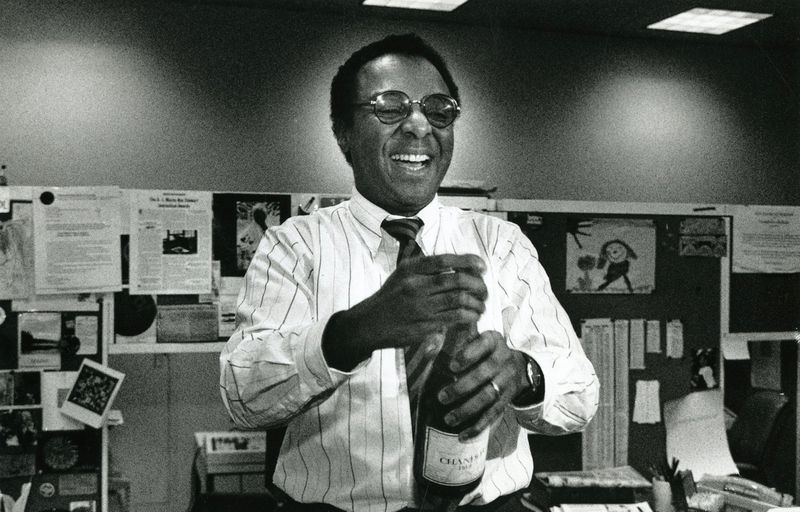
- “The portrayal of Islam and Muslims in the British press has been ‘the most difficult issue’ facing the press watchdog in the past five years, according to its outgoing chief,” Patricia Nilsson reported Wednesday for the Financial Times (subscription required). “ ‘I speak for myself, but I have a suspicion that [Muslims] are from time to time written about in a way that [newspapers] would simply not write about Jews or Roman Catholics,’ said Alan Moses, who is standing down after five years as chairman of the Independent Press Standards Organisation. His comments come two months ahead of [the group’s] plans to publish voluntary guidance for journalists when writing about Muslims, who make up roughly 5 per cent of Great Britain’s population, according to 2017 data from the Office for National Statistics. . . .”
- The Santa Fe New Mexican editorial board is backing student journalists at the University of New Mexico Daily Lobo, who have been “filing requests under the state Inspection of Public Records Act to obtain what they need to write the most complete stories possible.” David Weiss, chairman of the Communication and Journalism Department, reproached the students for their “frequent use/misuse/abuse of IPRA; namely its use as a first step in researching or reporting on a story, rather than being used only after interviewing sources.” The New Mexican Thursday called that reasoning “perplexing.”
- “The June 2018 mass shooting at the Capital Gazette newspaper in Annapolis, Maryland, has affected newsrooms around the nation,” Hannah Gaskill wrote Dec. 29 for the Capital News Service. She also wrote, “More frequently, news organizations large and small have security guards in their bureaus and with their broadcast crews out in the field. . . .”
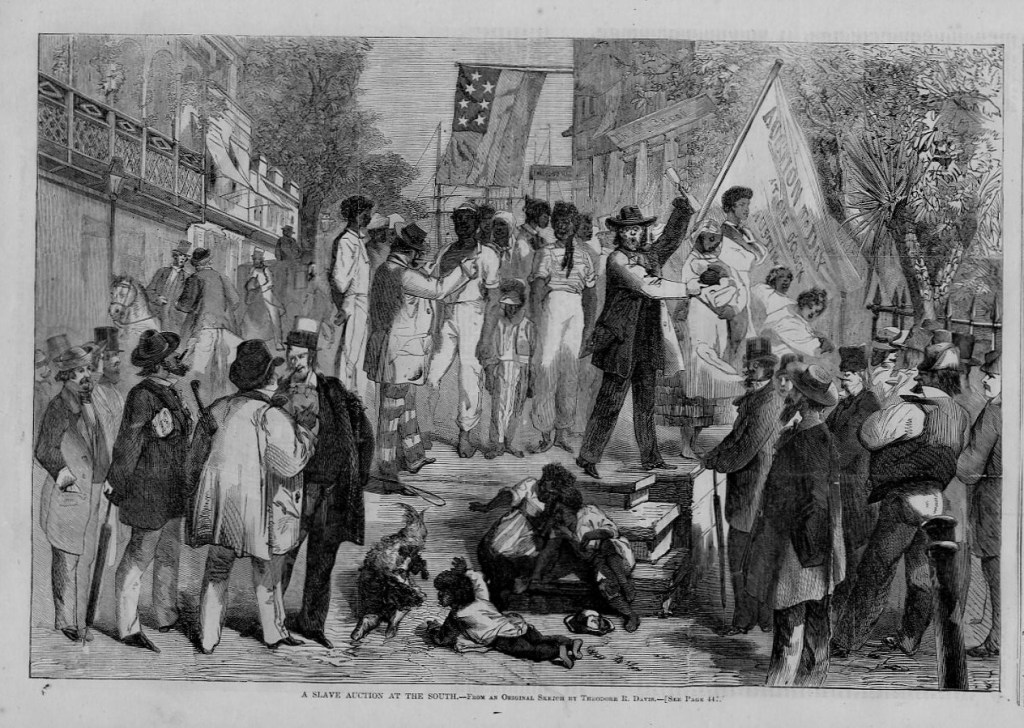
- “In the African-American community, New Year’s Day used to be widely known as ‘Hiring Day’ — or ‘Heartbreak Day,’ as the African-American abolitionist journalist William Cooper Nell described it — because enslaved people spent New Year’s Eve waiting, wondering if their owners were going to rent them out to someone else, thus potentially splitting up their families,” Olivia B. Waxman reminded Time magazine readers on Dec. 27. “The renting out of slave labor was a relatively common practice in the antebellum South, and a profitable practice for white slave owners and hirers. . . .”
- “The McClatchy Co., the newspaper publisher that’s teetering near bankruptcy, skipped a payment to some of its pensioners,” Josh Saul reported Thursday for Bloomberg. “The company will not be releasing funds to a ‘small number’ of participants in its Supplemental Executive Retirement Benefits plan as it addresses its long-term liquidity pressures, McClatchy said in a statement Thursday. . . .”
- “In November, the Federal Communications Commission approved the acquisition of Cox Media, the owner of the Dayton Daily News, by Apollo Global Management, a private equity firm,” Dayton Mayor Nan Whaley and Michael Copps, a former Federal Communications Commission member, wrote disapprovingly Thursday for USA Today. “Apollo’s first move? Cut the 121-year-old Dayton Daily News and two other newspapers to three days a week.” They also wrote, “Federal rules prohibit a company from owning a daily newspaper and a TV station in the same market. In addition to the Dayton Daily, Cox Media also owned the region’s largest TV station and several radio stations. Cox Media had been grandfathered in, but the FCC allowed Apollo to skirt the rules: With circulation reduced to three days a week, the Dayton Daily is technically no longer a daily newspaper, so the sale could move forward. . . .”
- “Indigenous journalists are more likely to recognize their own knowledge and experience as expertise and to situate themselves in relation to communities, lands, and waters,” Candis Callison wrote for Nieman Lab in discussing climate. “They’re leading the way on how to report on complex issues like climate change that bring into focus the global costs, losses, and histories of colonialism. Indigenous journalists are also more likely to recognize how settler colonialism persists in structures and institutions (including media) and how vital it is to access diverse Indigenous knowledge in charting adaptive pathways forward in a future with more drastic ecological changes. . . . ” Callison teaches at the University of British Columbia’s School of Journalism and Institute for Critical Indigenous Studies.
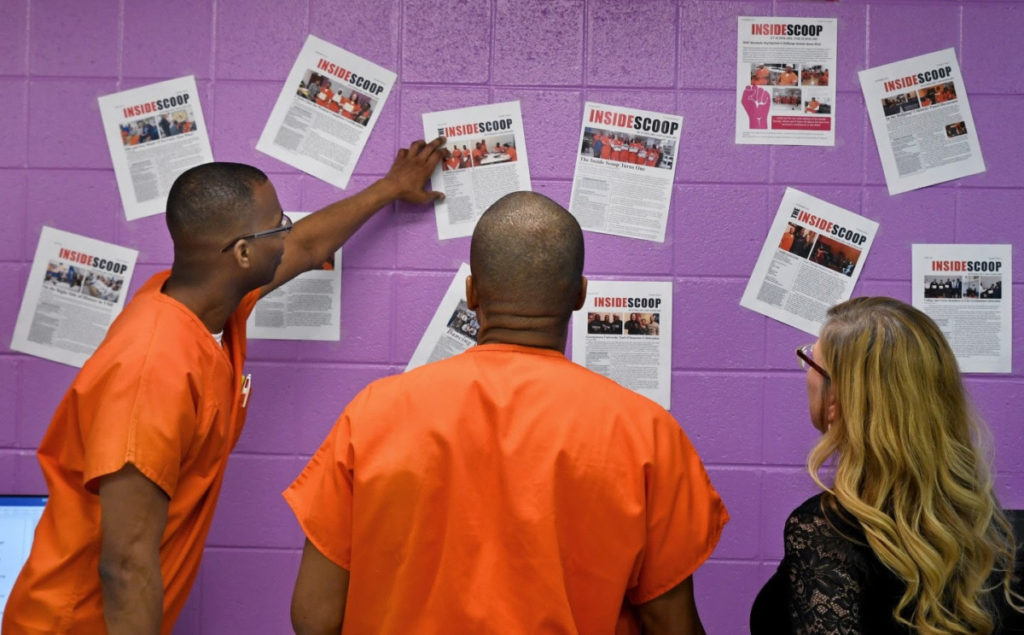
- “A dozen D.C. jail inmates are writers, columnists or photographers for a monthly newspaper called Inside Scoop,” Keith L. Alexander reported Saturday for the Washington Post. “Jail officials launched it a year ago as part of the facility’s education program. The jail is one of a handful of correctional facilities across the country to publish a news publication written by inmates. . . .”
- The Knight Foundation’s list of “14 Local News Leaders Who Are Shining Examples to the Field,” reported Dec. 20 by Knight’s Mark Glaser, includes Sarah Alvarez, founder and executive director, Outlier Media; Darryl Holliday, co-founder and News Lab director of Chicago’s City Bureau; Ju-Don Marshall, chief content officer of WFAE-FM public radio in Charlotte, N.C.; Tasneem Raja, executive editor and co-founder of the Tyler Loop in East Texas; Wendi C. Thomas, founder, editor and publisher of MLK50 in Memphis, Tenn.; and Graham Watson-Ringo, managing editor of the Rivard Report in San Antonio.
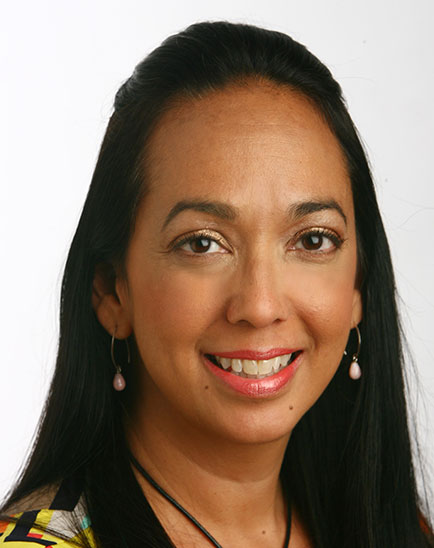 The New York Times’ Frances Robles (pictured) reported from Masaya, Nicaragua, where nine women went to a church to seek sanctuary and protest the treatment of their imprisoned husbands, who are political activists. “I was assaulted two days in a row,” Robles wrote Dec. 26. “The first time was a quick whack by a woman angry over having her photograph taken. A day later, a crowd of Mr. [Daniel] Ortega’s Sandinista Front party activists, who had gathered outside the chapel, surrounded me, pushed me to the ground and tried to wrestle my phone away. Then someone smashed a paving stone through my rental car’s windshield as I fled. The police, who were present, did not intervene. . . .”
The New York Times’ Frances Robles (pictured) reported from Masaya, Nicaragua, where nine women went to a church to seek sanctuary and protest the treatment of their imprisoned husbands, who are political activists. “I was assaulted two days in a row,” Robles wrote Dec. 26. “The first time was a quick whack by a woman angry over having her photograph taken. A day later, a crowd of Mr. [Daniel] Ortega’s Sandinista Front party activists, who had gathered outside the chapel, surrounded me, pushed me to the ground and tried to wrestle my phone away. Then someone smashed a paving stone through my rental car’s windshield as I fled. The police, who were present, did not intervene. . . .”
- “Laura Jarrett’s first day on the job started early this morning, well before you could even think about returning to the one you’ve held for months,” Brian Steinberg reported Thursday for Variety. “She joined co-anchor Christine Romans Thursday for the first time on ‘Early Start,’ CNN’s entry in what has fast become a serious business matter: catching TV-news early birds. . . .” She is the daughter of Valerie Jarrett, senior adviser in the Obama White House.
- The Black News Channel has pushed back its debut from Jan. 6 to Feb. 10. “Network executives previously announced plans to launch to an audience significantly larger than its original projections. The Black History Month launch provides the time necessary to build out the distribution platforms, apps, and other infrastructure necessary to accommodate this historic event [PDF],” the network said Tuesday.
 “A dispute over a racism accusation and how it was handled have upended the romance writers’ community, with best-selling novelists speaking out against the Romance Writers of America and most of the powerful, 9,000-member trade organization’s board resigning in the last days of the year,” Concepción de León reported Monday in the New York Times. The dispute arose over the group’s treatment of Courtney Milan (pictured), a Chinese-American former board member and chair of its ethics committee who last summer criticized Kathryn Lynn Davis’ novel “Somewhere Lies the Moon” on Twitter as a “racist mess.” Milan took issue with the book’s depiction of 19th-century Chinese women.
“A dispute over a racism accusation and how it was handled have upended the romance writers’ community, with best-selling novelists speaking out against the Romance Writers of America and most of the powerful, 9,000-member trade organization’s board resigning in the last days of the year,” Concepción de León reported Monday in the New York Times. The dispute arose over the group’s treatment of Courtney Milan (pictured), a Chinese-American former board member and chair of its ethics committee who last summer criticized Kathryn Lynn Davis’ novel “Somewhere Lies the Moon” on Twitter as a “racist mess.” Milan took issue with the book’s depiction of 19th-century Chinese women.
- “A sports editor for a New Mexico newspaper apologized this week after using ‘scalps’ in a tweet to describe a high school basketball team defeating a team with Native American student-athletes,” the Associated Press reported Dec. 29. “Hobbs News-Sun Sports Editor Jason Farmer said Friday the tweet was ‘very inappropriate and completely insensitive.’ . . . ”
- “Above the Law executive editor Elie Mystal is set to leave the organization,” Mariam Ahmed reported Friday for Talking Biz News. Mystal won a contest to be the new editor of Above the Law on Aug. 19, 2008. . . . . Before joining Above the Law, he covered politics and popular culture at City Hall News and the New York Press. . . .”
- “Black drivers in some of California’s largest cities are stopped and searched by police at higher rates than white and Latino motorists, according to a new state analysis,” Anita Chabria reported Thursday for the Los Angeles Times. She also wrote, “Los Angeles Times investigations last year found that Los Angeles police in the Metropolitan Division stopped black drivers at a rate more than five times their share of the city population, and the LAPD was more than four times as likely to search African American drivers during stops overall, compared with white motorists. . . . “
- “A Turkish court on Friday convicted six journalists and one other employee of an independent newspaper of aiding the network of a U.S.-based cleric who is accused of masterminding the failed coup in 2016, the state-run news agency reported, the Associated Press said Dec. 27. “The seven were accused of supporting the coup through their work for the newspaper Sozcu, which has been extremely critical of the government of President Recep Tayyip Erdogan. They all reject the accusations and are expected to appeal the verdicts. . . .” In Turkey, reporting is a daily struggle
- “An Egyptian journalist known for his critical views of the government said on Thursday that police raided his parents’ house the previous night and arrested his brother,” the Associated Press reported. “Mohamed el-Garhy tweeted that the police came to the home of his parents, who live in a village northeast of Cairo, and asked his father for his whereabouts. When they were told that he was in the city, the police woke up his brother and took him instead. . . .”
- “Egypt has for decades been a refuge for sub-Saharan African migrants trying to escape war or poverty,” Samy Magdy reported from Cairo Thursday for the Associated Press. “But the streets of Cairo, a metropolis of some 20 million, can bring new dangers in the form of racist harassment or even violence in ways that other significant migrant communities here, such as Libyans and Syrians, don’t face. While other major centers of African migration like Europe have been wrestling with racist violence, Egypt has only made small starts toward addressing the issue. . . .”
- “Burundi’s public prosecutor on December 30 asked for a 15-year prison term for four journalists for privately owned online news outlet Iwacu and their driver who are charged with undermining state security, according to Iwacu and other news reports,” the Committee to Protect Journalists said Friday. The prosecutor is also seeking to have the five stripped of their right to vote for five years after the imprisonment, and to have their property — including phones, camera, and a company car — confiscated, according to the same reports. The court is expected to rule on the case later in January, the same sources said. . . .”
- “
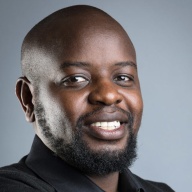 We have seen concerning moves towards shrinking the space for freedom of expression, with authorities citing online misinformation as justification,” Lee Mwiti (pictured), chief editor of Africa Check, the continent’s first independent fact-checking website, told firstdraftnews.org on Dec. 26. “Nigeria started out by seeking to employ public awareness campaigns around misinformation, but is now debating a ‘social media bill’ that has generated considerable angst. Kenya also has a similar controversial bill to regulate social media in the works, while even Senegal, an African poster child for democracy, has seen charges brought against citizens for allegedly seeding false news through WhatsApp. Even in South Africa, which has traditionally had more latitude, the media currently finds itself under a harsh spotlight in what is an increasingly tightly contested online space. . . .”
We have seen concerning moves towards shrinking the space for freedom of expression, with authorities citing online misinformation as justification,” Lee Mwiti (pictured), chief editor of Africa Check, the continent’s first independent fact-checking website, told firstdraftnews.org on Dec. 26. “Nigeria started out by seeking to employ public awareness campaigns around misinformation, but is now debating a ‘social media bill’ that has generated considerable angst. Kenya also has a similar controversial bill to regulate social media in the works, while even Senegal, an African poster child for democracy, has seen charges brought against citizens for allegedly seeding false news through WhatsApp. Even in South Africa, which has traditionally had more latitude, the media currently finds itself under a harsh spotlight in what is an increasingly tightly contested online space. . . .”
Facebook users: “Like” “Richard Prince’s Journal-isms” on Facebook.
Follow Richard Prince on Twitter @princeeditor
Richard Prince’s Journal-isms originates from Washington. It began in print before most of us knew what the internet was, and it would like to be referred to as a “column.” Any views expressed in the column are those of the person or organization quoted and not those of any other entity. Send tips, comments and concerns to Richard Prince at journal-isms-owner@yahoogroups.com
View previous columns (after Feb. 13, 2016).
- Diversity’s Greatest Hits, 2018 (Jan. 4, 2019)
- Book Notes: Is Taking a Knee Really All That? (Dec. 20, 2018)
- Book Notes: Challenging ’45’ and Proudly Telling the Story (Dec. 18, 2018)
- Book Notes: Get Down With the Legends! (Dec. 11, 2018)
- Journalist Richard Prince w/Joe Madison (Sirius XM, April 18, 2018) (podcast)
- Richard Prince (journalist) (Wikipedia entry)
- February 2018 Podcast: Richard “Dick” Prince on the need for newsroom diversity (Gabriel Greschler, Student Press Law Center, Feb. 26, 2018)
- Diversity’s Greatest Hits, 2017 — Where Will They Take Us in the Year Ahead?
- Book Notes: Best Sellers, Uncovered Treasures, Overlooked History (Dec. 19, 2017)
- An advocate for diversity in the media is still pressing for representation, (Courtland Milloy, Washington Post, Nov. 28, 2017)
- Morgan Global Journalism Review: Journal-isms Journeys On (Aug. 31, 2017)
- Diversity’s Greatest Hits, 2016
- Book Notes: 16 Writers Dish About ‘Chelle,’ the First Lady
- Book Notes: From Coretta to Barack, and in Search of the Godfather
- Journal-isms’ Richard Prince Wants Your Ideas (FishbowlDC, Feb. 26, 2016)
- “JOURNAL-ISMS” IS LATEST TO BEAR BRUNT OF INDUSTRY’S ECONOMIC WOES (Feb. 19, 2016)
- Richard Prince with Charlayne Hunter-Gault,“PBS NewsHour,” “What stagnant diversity means for America’s newsrooms” (Dec. 15, 2015)
- Book Notes: Journalists Follow Their Passions
- Book Notes: Journalists Who Rocked Their World
- Book Notes: Hands Up! Read This!
- Book Notes: New Cosby Bio Looks Like a Best-Seller
- Journo-diversity advocate turns attention to Ezra Klein project (Erik Wemple, Washington Post, March 5, 2014)
Columns below from the Maynard Institute are not currently available but are scheduled to be restored soon on journal-isms.com.
- Book Notes: “Love, Peace and Soul!” And More
- Book Notes: Book Notes: Soothing the Senses, Shocking the Conscience
- Diversity’s Greatest Hits, 2015
- Diversity’s Greatest Hits, 2014
- Diversity’s Greatest Hits, 2013
- Diversity’s Greatest Hits, 2012
- Diversity’s Greatest Hits, 2011
- Diversity’s Greatest Hits, 2010
- Diversity’s Greatest Hits, 2009
- Diversity’s Greatest Hits, 2008
- Book Notes: Books to Ring In the New Year
- Book Notes: In-Your-Face Holiday Reads
- Fishbowl Interview With the Fresh Prince of D.C. (Oct. 26, 2012)
- NABJ to Honor Columnist Richard Prince With Ida B. Wells Award (Oct. 11, 2012)
- So What Do You Do, Richard Prince, Columnist for the Maynard Institute? (Richard Horgan, FishbowlLA, Aug. 22, 2012)
- Book Notes: Who Am I? What’s Race Got to Do With It?: Journalists Explore Identity
- Book Notes: Catching Up With Books for the Fall
- Richard Prince Helps Journalists Set High Bar (Jackie Jones, BlackAmericaWeb.com, 2011)
- Book Notes: 10 Ways to Turn Pages This Summer
- Book Notes: 7 for Serious Spring Reading
- Book Notes: 7 Candidates for the Journalist’s Library
- Book Notes: 9 That Add Heft to the Bookshelf
- Five Minutes With Richard Prince (Newspaper Association of America, 2005)
- ‘Journal-isms’ That Engage and Inform Diverse Audiences (Q&A with Mallary Jean Tenore, Poynter Institute, 2008)
![]()

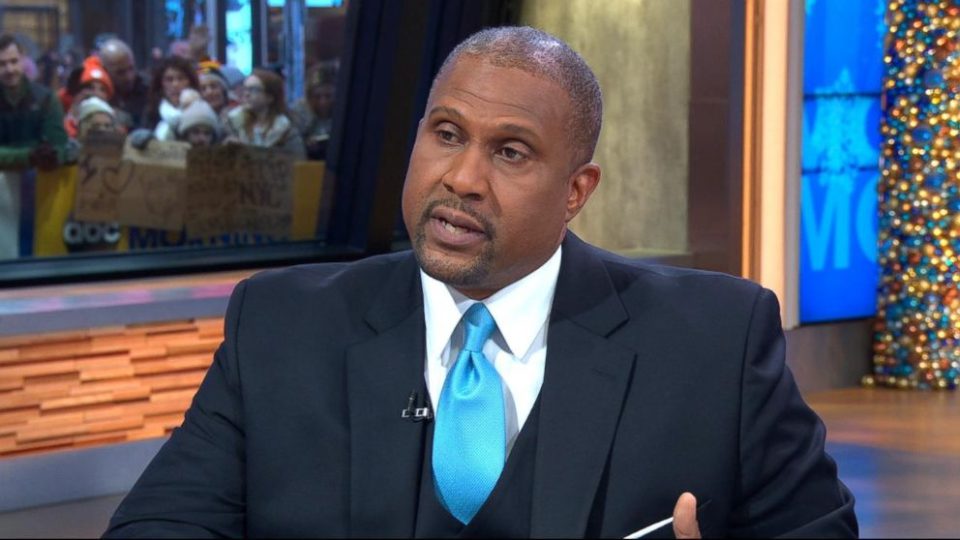
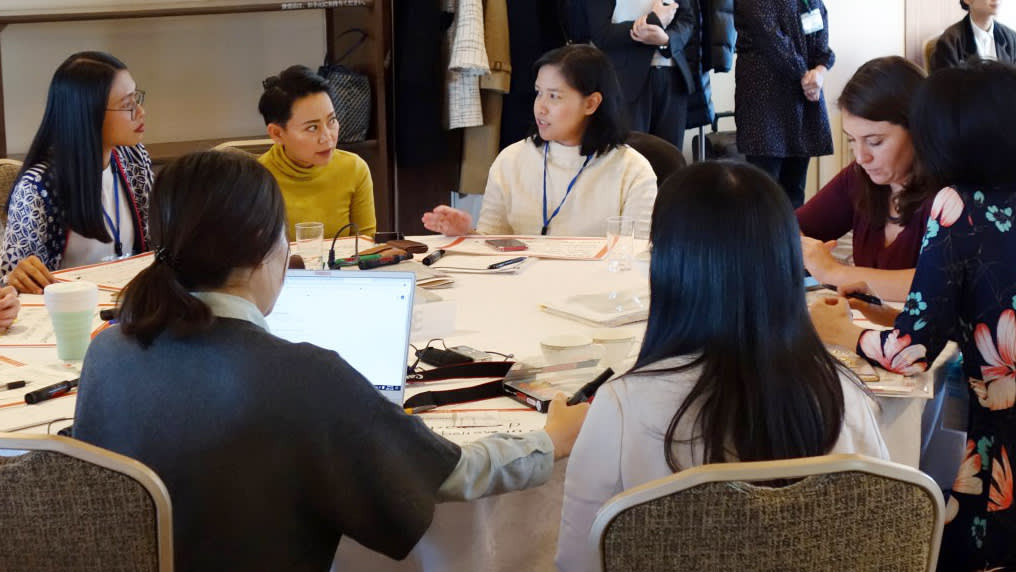
21 comments